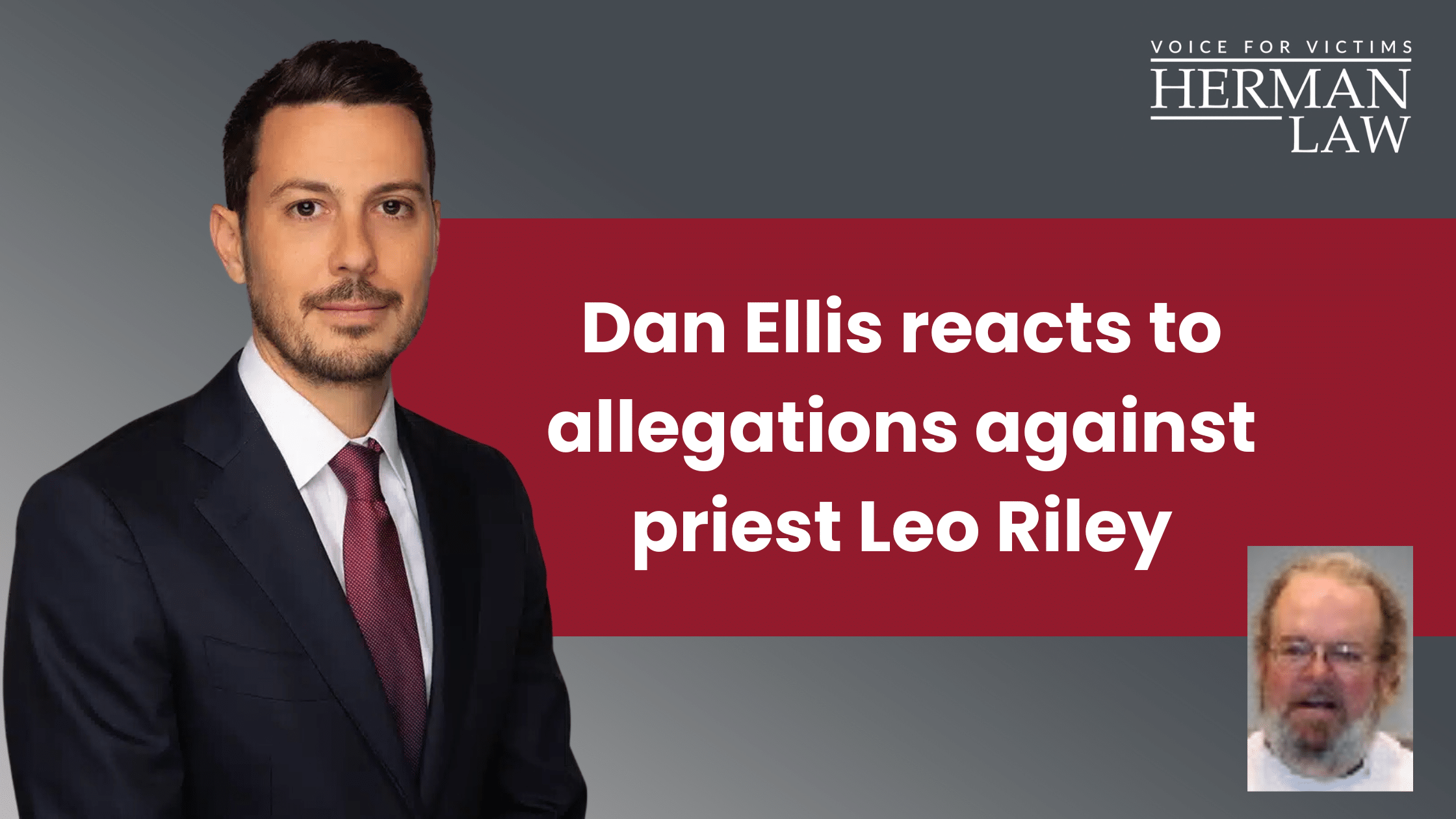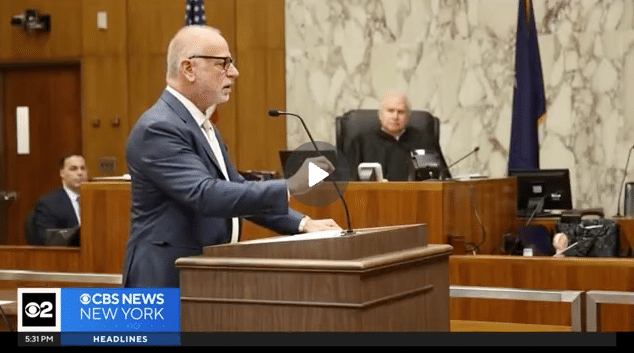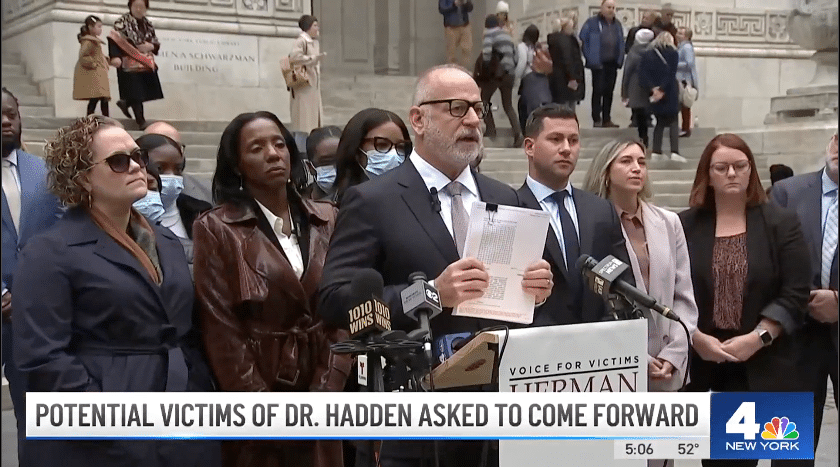Our brave client Susanne Robertson shares her story.
NBC NEWS – TO VIEW THE FULL ARTICLE CLICK HERE.
Nun sexually abused me at Catholic orphanage, woman says
By Aliza Nadi, Emily Siegel, Anne Thompson, and Rich Schapiro
Susanne Robertson has devoted much of her life to sounding the alarm over the horrific abuse she says she suffered at a New York orphanage more than 50 years ago.
A maintenance man sexually assaulted her in a boiler room. A nun violating her with a Lysol-soaked rag.
For nearly 25 years, her efforts to force a reckoning on the St. Colman’s Home near Albany have gone nowhere.
But now, the opportunity Robertson has been waiting for has finally arrived.
A new child sex crimes law goes into effect in New York Wednesday that allows Robertson to sue St. Colman’s for what she says was years of abuse that wrecked her childhood and continue to torment her today.
“The things that they did — people would not believe,” Robertson told NBC News. “This nun” — who she identified as Sister Regina — “was a pedophile.”
“People need to understand,” Robertson said, “that was a torture chamber on a Dickens level.”
Robertson, 68, says she’s not interested in making money off of her lawsuit against St. Colman’s, which now exists as a group home for autistic children run by the same order of nuns that operated the orphanage.AUG. 13, 201901:45
“I want to bankrupt them,” she said. “They need never, ever have the chance to abuse children again.”
Robertson and other former St. Colman’s residents interviewed by NBC News said they endured a litany of horrors at the hands, boots, and sticks wielded by the nuns who patrolled the orphanage’s hallways.
But the new law applies only to those who allege they were sexually assaulted.
The bill allows sex abuse victims to file civil suits — regardless of when the abuse happened — during a one-year window that ends in August 2020.
New York Gov. Andrew Cuomo signed the New York Child Victims Act into law in February, a move that advocates say will open the floodgates for child abuse victims long denied a chance to secure a measure of justice against sexual predators and the institutions that protected them.
“Children that have been raped and molested and sodomized by the people that they trusted, have a right to know that they matter and that justice is there for them,” said Kathryn Robb, the executive director of Child USAdvocacy, an organization focused on strengthening child protection laws.
New York is the first state to pass legislation this year that grants child sex abuse victims the opportunity to file legal action against their alleged perpetrators. Four other states and Washington, D.C., have now passed similar laws.
Robb, who helped lead the decade-long fight for a bill in New York, credited the Me Too movement and a Democrat-takeover of the state legislature for paving the way for its passage.
“We had some really great leaders that I felt were going to do the right thing, and they did,” Robb told NBC News.
Born to what she described as a mentally unstable mother and an emotionally-detached father, Robertson and her sister June Maloney were dropped off at St. Colman’s in the summer of 1957.
Robertson was six; Maloney was a year younger.
The sisters say they witnessed and were subjected to physical abuse almost immediately. There were beatings for the way orphans wore their clothes. Beatings for the way they read their prayers. And beatings for the way they made their beds.
Robertson said she fractured 11 ribs in assaults administered by Sister Regina and the other nuns at St. Colman’s.
But it wasn’t until Robertson was 11 or 12 when she says the sexual abuse began.
Robertson said she was standing in a line of girls awaiting their turn to shower when Sister Regina singled her out for wearing a slip she had been issued by the nuns.
“She said you could see my underwear and bra through the slip,” Robertson recalled.
Regina pulled her out of the line and commanded her to remove the undergarment in front of the other girls, Robertson said. But she refused.
“So she grabbed it and started to tear it off,” Robertson said. “She shredded that slip. It was probably in 50 pieces on the floor.”
Robertson said Regina then pulled off her bra and tied her hands behind her back with the yellow knit socks she had been wearing.
“I stood naked except for underwear in front of all the girls going into the shower,” Robertson said.
Once everyone was done, Robertson said, Regina turned to her and uttered a chilling threat.
“I’m going to teach you some respect for your body,” the nun said, according to Robertson.
Regina forced the preteen girl into a shower, marched off to a supply closet, and returned with a brown bottle of Lysol with black and red writing on it, Robertson said.
“She poured some on a cloth and she scrubbed my face and my eyes, up to my nose and in my mouth,” Robertson said. “Then she soaped it up again and shoved it inside me.”
Robertson said Sister Regina violated her a second time after an incident that 60 years later she still struggles to describe without breaking down in tears.
THE MAINTENANCE MAN
His name was Guy, and the little girls of St. Colman knew him as the maintenance man.
He was a man of about 40 or 50 years old who wore a navy blue uniform. Robertson still remembers his features.
A big nose. Salt and pepper wavy hair. Large hands. Hairy arms.
Robertson said Guy began preying on her when she was still a preteen, kissing her forcibly in the hallways and putting his hands where they didn’t belong.
Then, one day in the early 1960s, he escalated his attacks, Robertson said.
The maintenance man forced Robertson into a boiler room, she said, where he sodomized her with a broom before raping her.
‘After it was over, he kept looking at me and looking at the incinerator,” Robertson said, her voice cracking. “And he said, ‘I think you’re going to have to die girly.'”
Robertson said she pleaded for her life while still gagged with a white rag. Guy eventually let her go, she said, and she spent the next week in the infirmary.
Robertson said she reported what the maintenance man had done to her, but no action was taken. After her stint in the infirmary, Regina brought her to the shower room again and grabbed the bottle of Lysol.
“She put Lysol up inside of me again and she kept shoving and shoving and shoving, and I fainted in the shower,” Robertson said.
When she came to, Robertson said, Regina was glaring at her. ‘Put your clothes on,'” the nun said, according to Robertson.
Robertson said she told Regina she was going to tell her father, who occasionally came to visit, what happened. But before she got the chance, Robertson said, she was shipped off to a nearby school for mentally disabled children, Robertson said.
She returned to St. Colman’s roughly two months later and spent one day there before her father showed up to bring her home when she was about 13 years old. By then, Robertson’s sister had already been removed from the orphanage and was living with their father.
Robertson said it took decades before she recognized that what she says Sister Regina did to her was sexual abuse.
“That was not something that was ever discussed,” Robertson said. “Nuns couldn’t even be thought of in that particular vein.”
Robertson said she believes the cloistered lives they lived in the orphanage, denied access to such things as TVs and newspapers, also contributed to her taking so long to recognize what had happened to her.
“While I knew it was wrong, I didn’t have the word to call it sexual abuse,” Robertson said. “And then when I got a little older and I realized, ‘You know, that really was sexual abuse,’ but who’s going to believe?”
Robertson struggled with alcohol abuse in her early 20s, but she got sober after having a baby, married an engineer, and moved to Washington state where she began working as a caretaker for the elderly.
In 1995, she found out about a newspaper article about a boy who died at St. Colman’s, launching her into a decades-long crusade to get justice for all of those boys and girls allegedly abused there.
The Albany County District Attorney’s office opened an investigation into the facility and the local police department was inundated with allegations of abuse from former St. Colman’s residents.
The story garnered massive attention in the local press amid reports that at least three boys died under suspicious circumstances at the orphanage.
Robertson spoke to investigators from the Colonie, N.Y., police department, according to a 1996 police report obtained by NBC News, but the investigation ultimately yielded no charges.
THE FORMER DETECTIVE
Michael Ruede, an ex-Colonie police detective, said he went to the orphanage to interview Sister Regina, and was taken aback by her demeanor. By then, Ruede said, he had received multiple reports of her being physically abusive but he has no recollection of anyone alleging sexual abuse.
“We walk in there and it’s like dealing with a regular suspect — they play dumb,” Ruede recalled. “We explained why we were there and Sister Regina clutched her chest like, ‘Oh my God.”
“I thought, how could she not know what we’re here for. It’s been in the news for weeks.”
In the end, Ruede didn’t buy it. “She was sitting there playing dumb like a career criminal,” he said. “I thought it was a big phony act.”
Ruede said he ultimately submitted a case file to the Albany County District Attorney’s office, but the prosecutors wanted nothing to do with the case.
“It was like a hot brick,” Ruede said. “They didn’t want to touch it.”
Ruede said he understood the response to a point: the statute of limitations had run out on everything but the murder allegations. But he still felt like the authorities could have done more for the alleged victims. “It was practical,” Ruede said. “But do I think it was fair to the families or the victims? Not really.”
Sister Regina died in 2012, according to an online obituary.
The current Albany district attorney, David Soares, said he wasn’t able to weigh in on what happened more than two decades earlier.
“It would be improper for me to comment on discussions between victims and previous administrations,” Spares said. “I can, however, comment on our current process, which is to speak with every willing victim even if we know the statute of limitations has passed.”
In her suit, Robinson is targeting the St. Colman’s Home, the Sisters of the Presentation of the Blessed Virgin Mary and the Roman Catholic Diocese of Albany.
The diocese referred a request for comment to St. Colman’s and the order of nuns that Regina was involved in.
“This is the first we are hearing of these allegations,” the diocese said in a statement. “I would refer you to the Sisters of the Presentation, who operate St. Colman’s Home, for further comment. The home — and the religious order of sisters who run it — do not operate under the direction or authority of the Diocese of Albany.”
Representatives for St. Colman’s did not return repeated requests for comment. The Sisters of the Presentation of the Blessed Virgin Mary did not immediately return a request for comment.
Robertson’s lawyer, Jeff Herman, said pursuing a lawsuit has the potential to bring his client a “measure of justice.”
“Justice would be undoing what happened or even holding the people that actually raped her accountable in a criminal case,” Herman said. “But that’s not what we can do.”
Robinson, meanwhile, said she feels empowered by the simple act of filing the lawsuit.
“It means everything to me to be able to say, ‘I’m telling,’ and this time somebody is listening,” said Robinson.
Now based outside of Seattle, Robinson says her years of torment left her with permanent psychological scars and stripped her of her faith. She now considers herself an atheist.
“I cannot conceive of a God who would allow that kind of thing to go on in his name and not stop it,” she said.



